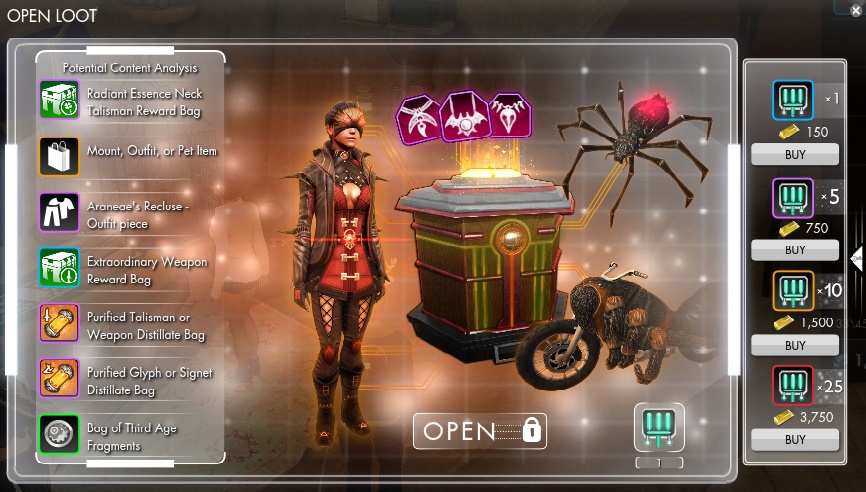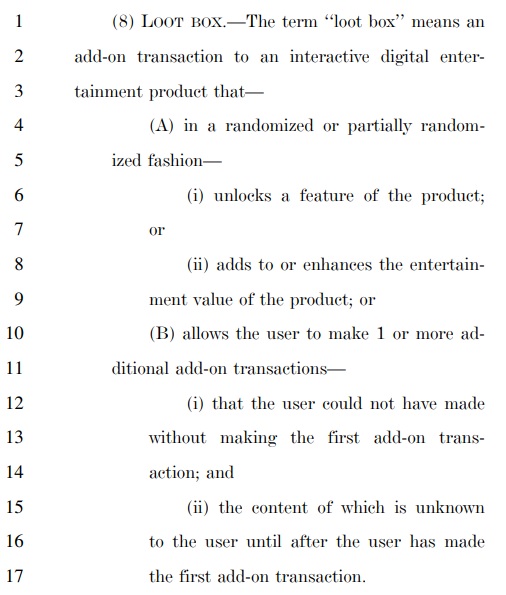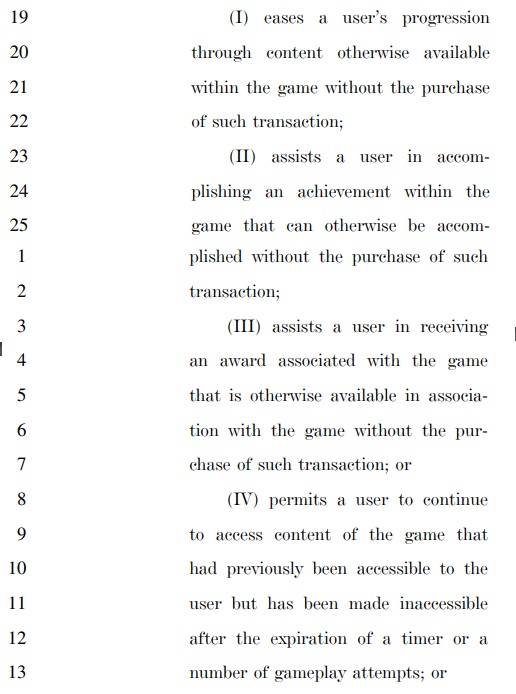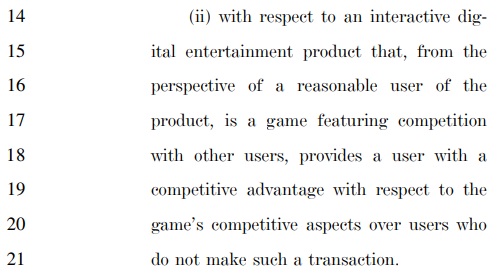The "Loot Box Bill" Is Impossibly Broad, But It Could Still Work As Intended
We've finally got the text of Senate Bill 1629, a.k.a. the Protecting Children from Abusive Games Act, introduced last week by Senator Josh Hawley (R-Mo.). It is, shall we say, expansive and imprecise, and, in this not-at-all-a-lawyer's opinion, unlikely to stand up to scrutiny and be passed into law, though some good still come from its proposal.
You can get a pdf of the bill's text here, or a summary provided by Hawley's office here. Its top-level purpose is:
To regulate certain pay-to-win microtransactions and sales of loot boxes in interactive digital entertainment products, and for other purposes.
As we discussed before, defining "pay-to-win" is something gamers haven't been able to agree upon collectively for years, and it's a near certainty that a senator -- one who admits to not being a gamer himself -- would also have issues with the matter. Before we get to that, though, there's another significant definition that the bill lays out, and in doing so, sweeps up nearly every game in its wake.
The bill is unsurprisingly cloaked in the guise of protecting children, and to do so, it must necessarily define which games are targeted at minors. Many of the clauses defining such games state that the game or some of its elements "appeal" to users under the age of 18. Obviously, that could apply to practically anything, including M-rated games.
It also applies to games "where the publisher or distributor has constructive knowledge that any users are under 18." In theory, just two people tweeting out "I'm 17 and I love @dota2" could meet this qualification.
So now that we've established that the bill applies to all video games, what precisely does it ban? Its definition of "loot box" seems pretty straightforward:
It sounds to me like Section B is describing the random-but-not-random Dota 2 loot boxes. Hey, nice to see those are at least on radar!
As for pay-to-win, that would be illegal for all games (not just "minor-oriented" ones), and the definition of it is split up into two categories that can broadly be defined as PvE and PvP. In PvE -- "a game offering a scoring system, a set of goals to achieve, a set of rewards, or a sense of interactive progression through the product’s content" -- pay-to-win is defined thusly:
Perhaps the strangest thing about this is that the first three clauses define P2W as things that you can buy that are otherwise available in a game "without the purchase of such transaction." Isn't the most basic definition of P2W having things that you can buy that aren't available without a purchase? Granted, if you altered the verbiage to say that you could purchase something that wasn't otherwise available through gameplay, you'd be banning all microtransactions.
The bill specifically excepts one-time purchases, such as expansions or DLC. As for cosmetic content, that's OK, though it "does commission a study of microtransactions that includes a study of the potential of cosmetic downloadable content to induce compulsive purchasing behavior by children," according to the synopsis. In any case, it's trying to define P2W in the context of PvE games, which is something you'd get 100 definitions for if you asked 100 gamers.
The definition of P2W for PvP titles is more straightforward:
Though the term "reasonable user" is used six times throughout the bill to gloss over what meets its definitions. As we all know, gamers are a 100% reasonable lot, so this language is totally and completely spot-on. Well, at least we'll have the courts to parse that out ...
-----
So what does all this mean? In my opinion, the bill tries to argue "for the children," which would be a valid avenue for it to find backing, but its definitions and restrictions will immediately be exposed as applying to games for players of all ages. That will likely lead to enough resistance to the point that it won't become law.
That said, if there's even an inkling of a chance it could get signed into law, that should scare the bejeezus out of developers. In perusing the comments sections on other, more developer-oriented sites, I've seen a few smaller devs say they've removed, or are not even considering, loot boxes in their games. Not counting EA and its response to Star Wars: Battlefront II, no medium to large developer has stated a similar policy, but this bill might be enough to intimidate them into taking action, either on their own, or collectively via the ESA. If that happens, I'd consider it a win.
Related Articles
About the Author

Jason Winter is a veteran gaming journalist, he brings a wide range of experience to MMOBomb, including two years with Beckett Media where he served as the editor of the leading gaming magazine Massive Online Gamer. He has also written professionally for several gaming websites.
More Stories by Jason WinterRead Next

Many of you may have seen a couple of pieces announcing Canadian developer 2Dog Games' upcoming free-to-play title Destiny's Sword.
You May Enjoy

Blue Protocol history is about to repeat itself...

The game features fast-paced action combat and over a dozen playable heroes.

New maps, Operator, gameplay feature, and crossover, plus console release coming soon.

The game promises “a dynamic battlefield where each move and card placement matters”.




As adults find themselves wondering "did i really spend all my money on that crap" no wonder i'm broke again!
Gambling is a major problem and some these games cause this problem to keep arising but thinking it to be under hidden floorboards. Which is wrong!!
Gaming is supposed to be about having FUN.
Its seems with everything we do in this world there are always going to be PARASITES and gaming has a mass of them. Just look at the Star Citizen developers!!